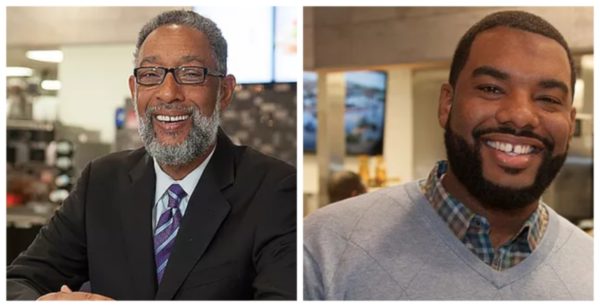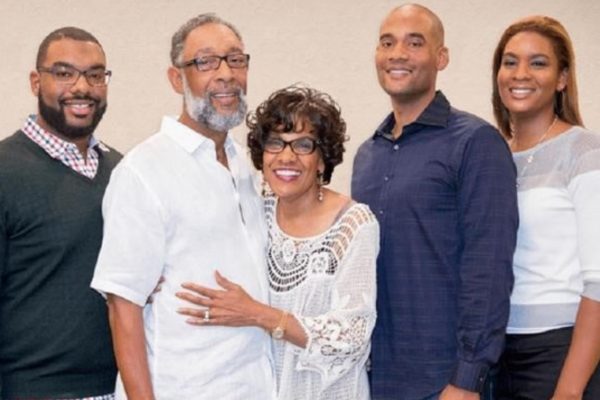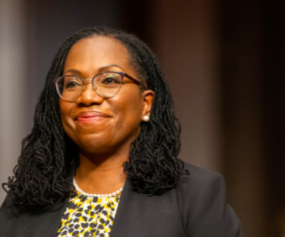Once upon a time, Reggie Webb was working at McDonald’s, struggling to make ends meet and living in a one-bedroom apartment in South Los Angeles. At one point he owned 16 franchises from the Golden Arches. No, Webb’s life isn’t a fairy tale, but it’s the true story of one man building generational wealth for his family.

Reggie Webb Builds Financial Empire
Webb started working for McDonald’s in 1973 and worked his way up to regional vice-president. When the corporation presented him the opportunity to be a franchisee, an owner of a McDonald’s in 1985, Webb leapt at the chance. He and his wife, René, became McDonald’s franchise owners.
“One of the big motivations for René and I to go into business was that our children could choose to join us and subsequently take over for us. I knew that they could not inherit my job, but could succeed us in ownership of the business we purchased and grew,” Webb told Finurah.
McDonald’s Becomes Committed to Diversity
Through Webb’s work as an executive and franchisee, McDonald’s saw how diversity in the corporate world was a strength. Webb said that McDonald’s eventually became one of the earliest adopters of diversity and inclusion.
“During my tenure as an executive and officer of McDonald’s Corporation and later a franchisee I led the transition of a company and system that struggled with diversity to one where it became a strength and a brand asset. McDonald’s was one of the early corporate adopters of a diversity department with the ability to carry out managements goal to create an inclusive environment, level playing field, and employee training that enabled minority group advancement,” Webb told Finurah.

A Family Affair: Webb’s Children Join Growing Business
As the business grew, the Webbs owned six McDonald’s franchises before his children Karim, Kiana, and Kyle joined the family business.
“I was inspired to join my family’s business because of my desire to continue my parents’ legacy,” Kyle Webb told Finurah. “My dad says, ‘My kids cannot inherit my job, but they can inherit my business.’”
According to the 73-year-old Reggie Webb, having the children getting involved in the franchises helped their business grow. He noted that they were able to relate to the workers because they were close in age.
“Since our children have come into the business, the number of restaurants has more than doubled because they bring passion and expertise. They’re so much closer in age to the people who work at the restaurant, and they just bring a tremendous amount of skill and energy that has allowed our business to flourish,” said Reggie Webb to the Los Angeles Sentinel.
Creating Intergenerational Wealth
Just as Reggie Webb built his empire, son Kyle Webb knew that he would continue as a McDonald’s franchisee and his children will as well.
“I grew up with that expectation, and with the expectation that my kids will have the opportunity [to] contribute in their family business,” Kyle Webb said.
The junior Webb said that intergenerational wealth is important for Black families.
“Creating generational wealth is so important in the Black community because much of the ways to improve our community’s standing in America is to more fully participate in capitalism. To more fully participate in capitalism, we must control capital,” said Kyle.
Webb Tips On Building Generational Wealth
Kyle Webb says there are generally three ways to build wealth — ownership of real estate (like one’s home and/or rental units); ownership of businesses (like stocks and/or operating hustles/businesses); and arbitrage.
He added that wealth affects all areas of our lives and is essential for the survival of Black America.
“If you look at quality of life outcomes (like health outcomes), they are mainly a function of one’s socioeconomic status. Socioeconomic status is predominantly made of one’s educational attainment, occupation, and income. The two determinants of socioeconomic status are one’s power and wealth, which independently create each other.
Essentially, one’s access to power and wealth determine one’s quality of life,” he noted. “If we, as a community, want our quality of life to improve, we have to create wealth in our community. If we want that wealth to perpetuate, it must be generational. Generational wealth is imperative to our thriving in this version of America.”
Kyle Webb also stressed the need to circulate the Black dollar within the Black community.
“That means we should buy Black, and we should also hold the Black companies we support accountable to hiring Black, and buying from Black suppliers,” he pointed out. “We need more companies whose purpose it is to help build more Black-owned companies that can be major suppliers to our community, and to the community at large.”
The Webbs shared many more insights about how they built intergenerational wealth and how other Black entrepreneurs can as well during the Finurah Wealth Summit.
How Millennials Can Create Generational Wealth
While Kyle Webb noted that he’s not passing on investing or finance advice, he did have an opinion about how millennials can create generational wealth.
“To create generational wealth, one must be able to take advantage of the tax and other laws/rules that have been created to help one grow and pass on wealth to the next generation(s). Once you have created the goal to create wealth, then identify how you want to create wealth,” Kyle Webb explained.
Millennials, he added, have an advantage. “The millennial generation probably has the greatest access to wealth creating activities ever. Technology is generally making access to these activities easier.”
Empowering Other Black Entrepreneurs
In addition to growing their business and creating intergenerational wealth, the Webbs created CEEM, the Cooperate Economic Empowerment Movement. The nonprofit organization gives business advice and support to African-American businesses. According to Reggie Webb, the dismal numbers about the Black wealth gap that inspired him to start CEEM.
“Over the past 50 years family wealth for African-Americans has shrunk,” Webb said in a statement. “According to Brookings.edu in the second quarter of 2020 white households at 60 percent of the population held 84 percent of household wealth at $94 trillion while Black households at 13.4 percent of U.S. population held just 4 percent of household wealth at $4.6 trillion.
Business ownership is one of the largest reason why this wealth gap exists and is growing. At 14.4 percent of the population Blacks own less than .1 percent of business revenue, cash flow, and assets.”
He added, “We created CEEM to organize the Black community to understand this problem, agree that our goal should be to own the same percentage of GDP as our percentage of the population, and act together to both create the opportunities, foster the solutions, and develop support mechanisms for our people to make consistent and continuous progress toward narrowing this gap.”
The Webbs have created an enduring legacy, and their business savvy will help educate Black entrepreneurs seeking knowledge about building successful businesses and wealth that will last for generations.




